About Us
The Global Renewables Congress (GRC) is a cross-country, cross-party platform facilitating peer-to-peer exchanges between and with Legislators and Members of Parliament on issues related to the rapid and large-scale deployment of renewable energy solutions. Current and former Legislators and MPs from national and regional parliaments can become members of the GRC.
The Challenge
According to the International Energy Agency, global greenhouse gas emissions from the energy sector grew by 1.4% in 2017 to a historic high of 32.5 gigatonnes, due to higher energy demand and the slowing of energy efficiency improvements [1]. Average concentration of atmospheric carbon dioxide (CO2) in the atmosphere is now above 410 parts per million (ppm), compared to 350ppm in 1990.
As a result, as research by NASA confirms, Earth’s long-term warming trend is still underway, with the five warmest years on record having occurred since 2010 [2].
In the 2015 Paris Agreement, the global community committed to limiting warming to “well below 2°C above pre-industrial levels and pursuing efforts to limit the temperature increase to 1.5°C” [3]. The IPCC Special Report on the impacts of global warming of 1.5°C confirms that exceeding these temperature limits would have disastrous consequences for life on Earth, from more and increasingly severe extreme weather events, such as floods and droughts, to irreversible changes to ecosystems and thus the way we live, produce and consume.
[1] www.iea.org/geco/emissions
[2] svs.gsfc.nasa.gov/4609
[3] UNFCCC, 2015, Art. 2.1a
The Paris Agreement has left us with an unprecedented opportunity to avert the worst consequences of climate change, while the Agenda 2030 – which includes the 17 Sustainable Development Goals – has provided us with a plan for sustainable development that leaves no one behind.
These political commitments require a global transformation of the energy sector in the coming years. However, existing policy measures and legal frameworks that aim at operationalising these commitments often fall short of their own ambition. While the transition towards an energy system powered by clean and sustainable resources has gained considerable momentum in recent years, a range of obstacles remain.
Renewable energy, therefore, is at the top of the agenda of many policy-makers worldwide. Technologies for renewable power generation, heating and cooling, and transport are available and, even more important, most often are the cheapest option. They also advance national energy security, economic growth, job creation, emissions reduction and curbing local pollution.
Taking the renewable energy pathway
Global Renewable Power Capacity, 2007-2017
Adapted from REN21 RENEWABLES 2018 GLOBAL STATUS REPORT
The Global Renewables Congress (GRC) is a cross-country, cross-party platform facilitating peer-to-peer exchanges between and with Legislators and Members of Parliament. The GRC focuses on solutions for a rapid and large-scale deployment of renewable energy through enabling legislative frameworks. Current and former Legislators and MPs from national and regional parliaments can become members of the GRC.
The platform recognises the varying technical, economic and social conditions in different parts of the world that influence which renewable energy policies and solutions are most appropriate and effective. The platform offers expertise, advice and facilitates peer-to-peer dialoguesin identifiying and deploying the most suitable renewable energy policies and solutions for effective acceleration of the energy transition. The GRC places an emphasis on the benefits to communities and local value creation at the heart of RE action or policies.
The Global Renewables Congress is a project of the World Future Council Foundation. More information about the World Future Council can be found at www.worldfuturecouncil.org
Objective of the GRC
The goal of the Global Renewables Congress is the institutionalization of an international, non-partisan dialogue for legislators to exchange knowledge and experiences on renewable energy solutions, including the technological and economic potentials, and socio-economic benefits of renewable energy.
The GRC offers:
- Exchange of experiences with Legislators on implementing policies to ensure rapid deployment of renewable energy and RE investments, such as Feed-in tariffs, subsidies, green bonds, battery storage, energy sharing models, etc.
- Renewable energy briefings on key issues such as transport, heating and cooling and international events (e.g. renewable energy in the NDC process)
- Capacity-building and exchange opportunities through webinars and workshops on issues such as policy roadmap development, target setting, lessons learned from electrification of the transport system etc.
- Support for the development and utilisation of renewable energy pathways and policies
The role of Legislators
Legislators and Members of Parliament are crucial actors for the just energy transition. Legislators can catalyse and facilitate the implementation of the frameworks and guardrails needed to guide the transition, develop policies to overcome remaining barriers and ensure international commitments are implemented. In light of the complexity of the task, a subject-specific and technical exchange of experiences between Parliamentarians is needed.
Chair
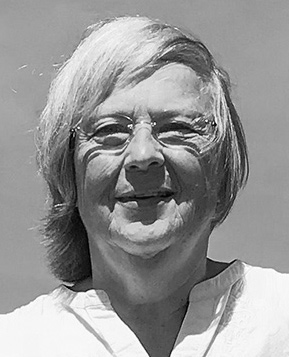
Bärbel Höhn
The Global Renewables Congress (GRC) is chaired by Bärbel Höhn, former MP of the German Bundestag and acting Commissioner for Energy Reform in Africa for the Federal Ministry of Economic Cooperation and Development.
Advisory Board

Cathrine Adelmann
Catherine Adelmann is a researcher at the University of Applied Sciences Ulm (Technische Hochschule Ulm), specializing in long-term energy storage and smart grids. Previously, she was the CEO and founder of Fosera, a German manufacturer of small solar home systems dedicated to electrifying communities in Africa, Asia, and Latin America with clean, sustainable, and affordable solar energy. She also conducted research on solar standalone systems at the Solar Energy Research Institute of Singapore. Catherine holds a bachelor's degree in Industrial Engineering and a master's degree in Advanced Management.
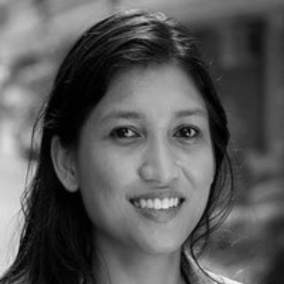
Sara Jane Ahmed
Sara Jane Ahmed currently serves as a Finance Advisor to the Vulnerable Group of Twenty (V20) Ministers of Finance of the Climate Vulnerable Forum (CVF). She provides advisory support to governments and relevant partners on the energy transition, climate finance and financial protection strategies. She steered efforts in the energy transition in the Philippines Bangladesh as an energy finance analyst with the Institute for Energy Economics and Financial Analysis (IEEFA). She was previously an investment advisor for private equity groups specializing in originating and structuring energy opportunities. She holds an MS in Finance from the Simon Graduate School of Business, University of Rochester.

Katharina Habersbrunner
Katharina Habersbrunner (she/her) is a board member of Bündnis Bürgerenergie (BEEn), the umbrella association for citizen energy initiatives in Germany, which advocates for an ambitious, decentralized, and socially just energy transition. She also serves as a senior energy expert at Women Engage for a Common Future (WECF), an international NGO dedicated to sustainable development, climate protection, and energy transition, with programs in Europe and Africa. Katharina's professional expertise lies in decentralized citizen energy projects, local energy markets, energy efficiency, addressing energy poverty, and promoting socially equitable and gender-just energy solutions at both national and international levels. In recognition of her engagement, she was honoured with the European Commission’s “Women in Energy” award in 2020.
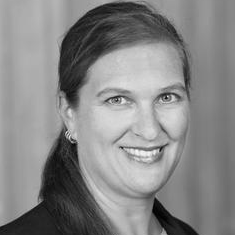
Dr Cornelia Soetbeer
Cornelia Soetbeer is head of the department Environmental Communication and Protection of Cultural Heritage at the German Federal Environmental Foundation (DBU). She has been working for foundations for more than 17 years. Previously, she has been a program manager at the Alfried Krupp von Bohlen und Halbach Foundation in Essen and head of the team "Challenges - for Academia and Society" at the Volkswagen Foundation in Hanover. She received her doctorate in Romance languages and literature at the Christian Albrecht University at Kiel in 2002.
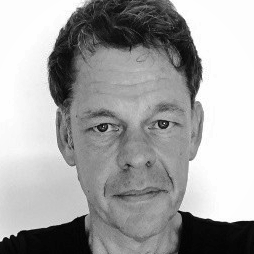
Dr Sven Teske
Dr Sven Teske is a Research Director at the Institute for Sustainable Futures, University of Technology, Sydney. Among his areas of expertise are decentralized energy and renewable energy system analysis, modelling, electrification concepts for least developed countries, and 100% renewable energy pathways for CVF countries. Dr Teske published the Springer book Achieving Paris Climate Agreement – global and regional 1.5C pathways that demonstrates economic decarbonisation of the world energy sector is possible. He was a lead author for the IPCC Special Report Renewables (Chapter 10: Scenario analysis), published in 2011. He holds a PhD in economics from the University of Flensburg in Germany.
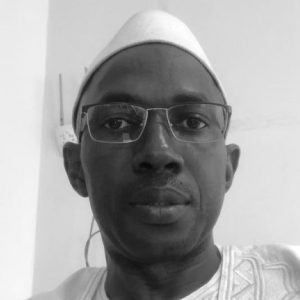
Ibrahim Togola
Ibrahim Togola is Chairman and Co-Founder of ACCESS SA, a company aiming at rural electrification with hybrid solar and diesel systems in Mali, and the Chairman and Founder of Mali Folkecenter, which aims to increase awareness of renewable energy, climate change and sustainable development. He is an engineer and economist working on solar PV both with grid-connected and decentralized mini-grid as well as off-grid solar home systems. He has implemented many projects for the European Union, World Bank, UNDP, KFW and national governments to overcome the barriers facing access to sustainable and modern energy services in Africa.
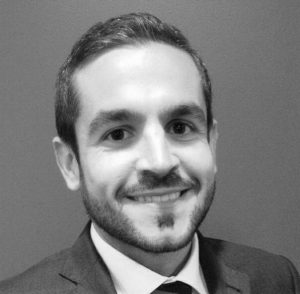
Riccardo Toxiri
Riccardo Toxiri is Programme Officer at the International Renewable Energy Agency (IRENA) where he supports the Agency's strategic engagement with parliamentarians and youth under the umbrella of the multi-stakeholder outreach. Before, he worked as Policy Advisor on international institutional relations and initiatives at GSE, the Italian State Agency that promotes renewables and energy efficiency, to pursue and achieve climate and sustainable development goals. He graduated in MSc Economics and Business at Università Cattolica del Sacro Cuore of Milan and holds a Post-graduate Master in Renewable Energy from the Polytechnic University of Milan.
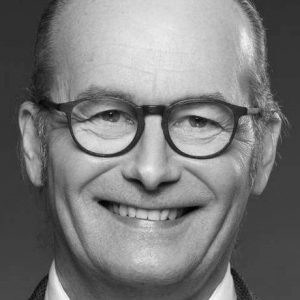
Claude Turmes
Claude Turmes is Minister for Energy and Minister for Spatial Planning of Luxembourg. He served as Secretary of State for Sustainable Development and Infrastructures and was a Member of the European Parliament from 1999 to 2018. During this period he was Vice President of the parliamentary group of the Green Party in the European Parliament and member of the Committee on environment, health and consumer protection as well as a member of the Committee on industry, energy, telecom and research. From 2004 to 2018, he was the chairman of EUFORES. Prior to his election to the European Parliament, he was an activist and volunteered to lead various environmental associations.

Paola Vega
Paola Vega is a political scientist with studies in Environmental Management and Local Development and extensive experience in the design of environmental and climate public policies. She was deputy of the Republic of Costa Rica and for three years president of the Permanent Chamber of Environment from where she promoted important legislative reforms on access to clean water, renewable energy, banning single-use plastics and green financial bonds. She has led actions for a permanent ban on oil exploration and exploitation in her country, and is a founder of global initiatives such as the Fossil Fuel Non-Proliferation Treaty Initiative and the Global Alliance for a Green New Deal.
Secretariat
The World Future Council Foundation provides the Secretariat of the Global Renewables Congress.

Lena Dente
Lena Dente leads the Global Renewables Congress project. With a sharp focus on strategic collaboration, consultative and multistakeholder engagement, as well as staying on top of climate action policy and renewable energy developments she ensures that the GRC work serves to further clean, accessible, and affordable energy solutions with a special focus on knowledge and capacity building and Global South engagement. Before joining the GRC, Lena worked at the intersection of sustainability, philanthropy, and policy - helping philanthropists and changemakers maximise their impact and by collaborating with leaders across sectors to turn climate dialogue into tangible action. Her work has spanned public and private institutions, including the World Economic Forum, the World Energy Council and UBS. Lena holds a bachelor’s degree in international studies from DePauw University and a master’s degree in international security policy from Georgetown University’s School of Foreign Service. Most recently she obtained further qualifications from the Cambridge Institute for Sustainability Leadership. Lena is a keen communicator and partnership builder who believes in the power of impactful and strategic philanthropy to tackle shared global challenges.

Stefan Schurig - Senior Advisor
Dipl.-Ing. Stefan Schurig is an architect by training with over 20 years of leadership in international climate policy, sustainable energy, and urban development. He currently serves as Managing Director of the Toni Piëch Foundation in Switzerland and advises the Global Renewables Congress (GRC), as well as the Hamburg Sustainability Conference on behalf of the Michael Otto Foundation. Stefan was the founding Secretary General of the Foundations Platform F20, a global network of philanthropic foundations. Prior to that, he led Climate & Energy work at the World Future Council. From 1998 to 2007, he led Greenpeace Germany’s Climate and Energy Unit. With a career spanning civil society, philanthropy, and international policy, Stefan brings a unique systems perspective to advancing the global energy transition.
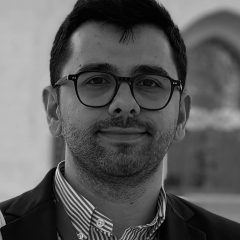
Ali Gülcegün
Ali Gülcegun plays a key role in the coordination and strategic development of the Global Renewables Congress (GRC). He supports the GRC’s mission by liaising with partners, external advisors, and key stakeholders - ensuring effective collaboration across the network. His work spans the organization of high-level policy dialogues and events, fundraising and project reporting. With a background in international policy, multilateral diplomacy, and humanitarian response, Ali brings a global perspective and a strong commitment to sustainable development. Prior to joining the GRC, he worked with several international organizations, supporting initiatives at the intersection of governance, crisis response, and social equity. Ali holds a Master’s Degree in development studies from the University of Bayreuth and a Bachelor’s Degree in political science and international Relations from Marmara University.

